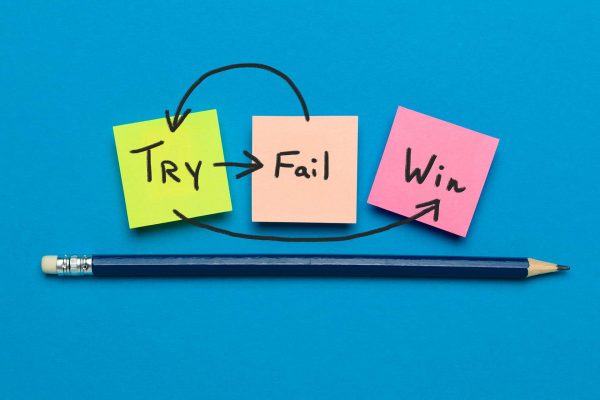Who wants a career fail? It is an unpleasant and incredibly challenging experience for intelligent, disciplined, and hardworking individuals who may not often experience rejection or failure. Competition stiffens as we ascend in our careers making setbacks inevitable. If this is your first time facing a career failure, or even if it’s not, you may need some guidance to help you get back on track.
Read on for 5 tips for rebounding after a career fail.
1. Manage Your Emotions
To begin with, you might be angry, bitter, jealous, offended, or even outraged. You can’t believe this is happening and may want to scream – “Not fair!!” Don’t deny it. Now is the time to be honest with yourself. A wise person once said, “Understanding is the first step to acceptance, and only with acceptance can there be recovery.” The wisdom is twofold. First, it’s okay and healthy to be angry or upset during difficult situations. What good does it do to try to deny or judge yourself for reacting as any average person might respond in a similar case? But immediately, or as soon as possible, begin to take action. Step out of your anger into a new resolve. That is the second part of the wisdom: you have the power to manage your emotions positively, whether in victory or defeat.
2. Accept The Failure
If you have reached your current position with relative ease and are looking to ascend that corporate or organization ladder, you must consider the facts. The higher you aim, the stiffer the competition. If you play the game, the odds are astronomical that you will fail at some point. That’s why it is so important to manage your emotions (see #1.)
When asked about adjusting to the NBA, Larry Bird responded that it was difficult to get used to losing. To succeed in the NBA, you cannot dwell on yesterday’s game or your last shot. Consider actors, dancers, and musicians who must constantly audition for parts. It’s simply a mathematical fact that to truly succeed, you must risk rejection and a career fail. If you are succeeding, then failure becomes inevitable.
3. Learn About the Career Fail
Every single failure, no matter how small or large, is an important learning opportunity. A career misstep is another opportunity to learn. Missing these opportunities is the real loss. What went wrong? Why? What could I have done differently? What would you change next time? These are just a few examples of the types of questions you can ask yourself. Think of what you will accomplish with the plethora of knowledge gained from this “failure.”
4. Consider Your Options
Before you make any decisions, consider your options. The right answer may not be the most obvious one. Is it time to leave your company and look for new opportunities? Or, should you put the effort into making things work? Maybe you want to change your career entirely, retire, or take a sabbatical. There are many ways to address a career mistake and taking time to think them through will help you decide the most strategic move.
5. Seek Help From the Career Fail
Finally, going through a career disaster is a tumultuous experience. And, it’s almost impossible to see everything without your own biases. That’s why it’s so important to reach out for help. Many professionals face a career fail in their work trajectory. Colleagues, coaches, mentors, friends, and family are all great resources to help you get through turbulent times.
Want more advice on career fails? The coaches at Ignite Your Potential are here to help. Reach out and take advantage of our complimentary 25-minute phone sessions.
Ready to shift into overdrive? Try our new Career Course, designed to help find an engaging, fun, and fulfilling career.



